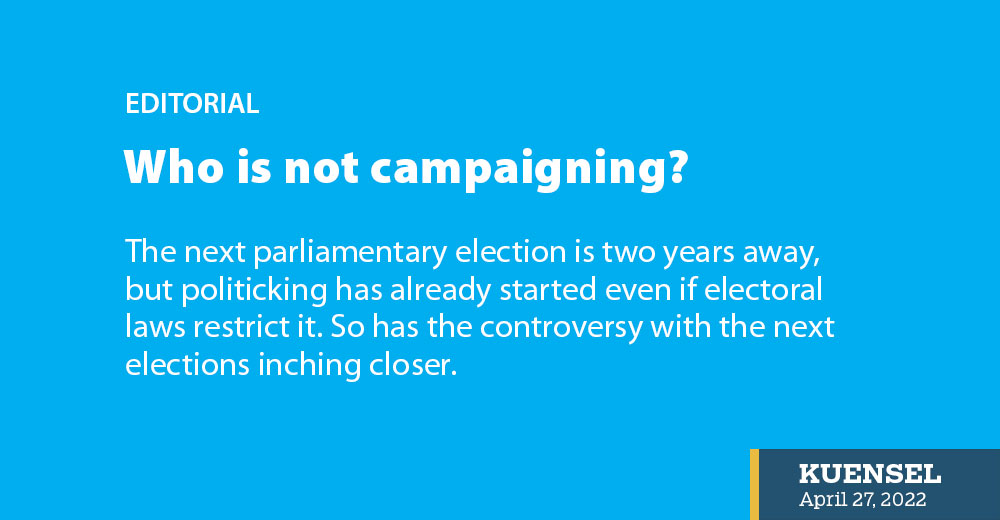The next parliamentary election is two years away, but politicking has already started even if electoral laws restrict it. So has the controversy with the next elections inching closer.
A senior forestry official who resigned to join a political party is accused, in the social media, for campaigning. She has tendered her resignation and will be relieved at the end of April. Her presence in her village- called constituency in political terms – is monitored closely after knowing her intentions.
The Election Commission of Bhutan has asked political parties to wait until the election period is announced before they start campaigning. The idea is to provide a level-playing field. Political parties outside the Parliament could use the period to do their groundwork. It is seen as a disadvantage for those in the government or opposition, as they cannot openly campaign.
But there is a thin line. Who is not campaigning?
A serving minister on a constituency visit or a serving Member of Parliament attending a village tshechu is not considered as campaigning. The presence of a member of a political party outside the Parliament in the village or a local festival is construed as one.
The ruling government has the upper hand. They could use their machinery to stop or punish those who are seen as helping politicians. Kuensel came to know that some civil servants were reprimanded for inviting or letting aspiring politicians attend official gatherings during the election period.
Nearly 15 years into politics, the change in our governance system has hardened our politicians and they know what to do, when and how to do it. Not long ago, when we were not used to open political campaigning, individuals were reluctant to declare political ambitions. This has changed, we are impatient for the race to begin.
The campaigning line is blurred when a serving minister attends, for instance, a Lhakhang consecration where the cost is adjusted from his hospitality and entertainment budget and the presence of a politician from another party attending a community gathering.
We are still learning and trying to improve our legislation. What defines campaigning is an important issue we need to look into. Our election rules were passed without hindsight. What is happening on the ground is complicated and could circumvent election rules.
A good example is the president of the People’s Democratic Party. The president is a de-suup, a dedicated and hardworking one for that matter. As a former prime minister, he is respected among the “De-suup Nymros.” Some are already concerned if the president would win all the de-suup votes.
As we prepare for the fourth parliamentary elections, there are many things that needs to be ironed out. The level playing field that we are quick to remark on cannot be levelled if we do not make our regulations and legislations relevant.
Time is on our side and we need to iron out the wrinkles that could make us uncomfortable.


